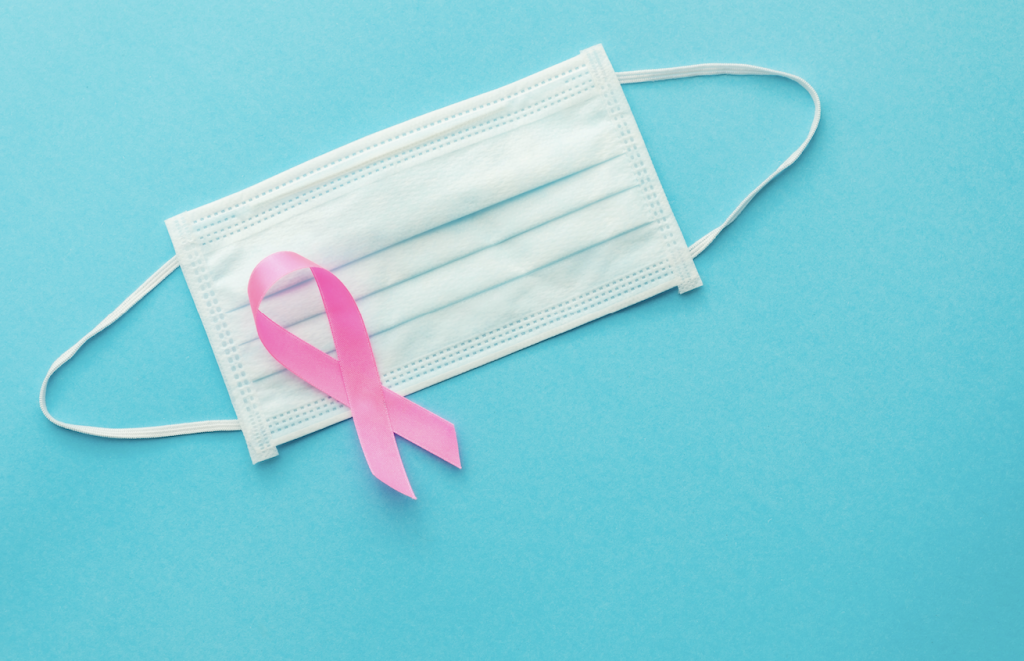
From the suspension of routine screening programmes, to narrowed palliative and end-of-life-care treatments, every part of the pathway has been impacted. For insurers, this has not only heightened the importance of products such as critical illness cover, but also a responsibility in providing reassurance for patients and their families at an extremely distressing time.
With this in mind, there are a number of key areas that we are monitoring and considering more closely in the current climate.
Disrupted screening programmes
Recent reports of screening measures being delayed and suspended has sparked growing concerns among oncologists. Appointments decreased by as much as 90% in some cases1, and this trend is only likely to continue as we encounter further waves.
For cancers like breast and colorectal in particular, the impact of interrupted screening can be profound, leading to increased burden of illness and shorter survival when diagnosed at more advanced stages.
Fewer new cancer diagnoses
Despite the medical profession working hard to bring services back online, we’ve seen a substantial decrease in cancer patient visits and therapy when compared with pre-pandemic times. This is most likely owing to the disruptions in screenings, as well as delays to surgery and patients opting not to seek medical help due to a fear of catching the virus.
This seems to be particularly impacting older generations, with hospital admissions for cancer care in older patients shown to be more affected than those in younger ones.6
Unfortunately, cancers still occur regardless of a pandemic, so we should prepare for more frequent later, more advanced stage diagnoses over the coming months, leading to a greater impact on peoples’ health and life expectancy.
Altered treatments increasing the risk of Covid-19
Some cancer therapies need to be given intravenously, bringing with them an increased risk of infection, whilst other therapies suppress the immune system and can make the recipient more susceptible to COVID-19.
To reduce these risks and minimise viral exposure in cancer clinics during the pandemic, several cancer treatments have been stopped or modified. How this will impact survival rates is hard to predict at this point, but is definitely something to consider as we move forward.
Delays leading to increased mortality rates
Among the most common cancers and the curative treatment (surgery, systemic treatment, and radiotherapy), even a short-term treatment delay has been associated with increased mortality. Depending on the type of cancer and the treatment type, an increase in mortality rates ranging from 6% to 13% was reported for a four-week delay during the pandemic.2
A population-based modelling study from the UK has estimated the impact of diagnostic delays on survival up to five years after diagnosis of the most common cancer types, including breast, colorectal, lung and oesophageal cancer.3 Compared with pre-pandemic figures, for these tumours, it could result in an additional 3,291–3,621 additional deaths in the UK alone.
Impact on cancer research
The closure of laboratories and temporary suspension of clinical trials has been leading to delays of new drugs and treatments coming to market. However, the promising progress in research of vaccination strategies (i.e., mRNA technology) shows real promise for new precision cancer treatments in the future.
For those who already hold life, critical illness or disability cover the tangible benefits of that protection are clear. For new insurance applications, the process may be more challenging, since many applicants will not have had access to their usual level of GP contact, or have missed hospital appointments due to delays/rescheduling. This means the amount of underwriting information may be scant.
There are, however, huge efforts behind the scenes to understand the health impacts of the pandemic, to know which tests may still be available, to screen without aerosol generating tests so that insurance can be placed. In the NHS the clinical teams are using new ways to communicate in order to circumvent the difficulties that face to face contact brings. Whether the delays in cancer diagnosis and treatment result in excess deaths to a significant degree remains to be seen, but one thing is known. The cancer teams in the NHS will be sacrificing time with their families to ensure that other families can remain together.
Products such as critical illness cover continue to be a vital means of providing reassurance and resilience when it’s most critical to cancer sufferers. The tangible benefits of insurance have never been more clear.
- Mitchell EP. Declines in Cancer Screening During COVID-19 Pandemic. J Natl Med Assoc. 2020;112(6):563-564. doi:10.1016/j.jnma.2020.12.004
- Hanna TP, King WD, Thibodeau S, et al. Mortality due to cancer treatment delay: systematic review and meta-analysis. BMJ. 2020;371:m4087. Published 2020 Nov 4. doi:10.1136/bmj.m4087
- Maringe C, Spicer J, Morris M, et al. The impact of the COVID-19 pandemic on cancer deaths due to delays in diagnosis in England, UK: a national, population-based, modelling study [published correction appears in Lancet Oncol. 2021 Jan;22(1):e5]. Lancet Oncol. 2020;21(8):1023-1034. doi:10.1016/S1470-2045(20)30388-0
